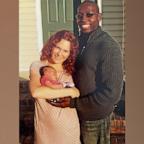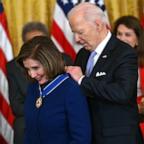Two Years From Election, Looking at Early Polls
Jan. 17, 2007 — -- With exploratory committees in the making and the big names clearing their throats, it's a fine time to check your scorecard for the 2008 election. But don't worry too much about who's ahead.
There are plenty of pre-election polls to look at, and they are what they are. Good polls provide a reliable assessment of current preferences. But how these initial preferences play out is another question -- and there's long time yet for this race to run.
When it comes to the latest presidential explorer, Sen. Barack Obama, D-Ill., for instance, one in three Americans haven't yet formed a basic opinion of the man. Only a quarter have a strongly held opinion of him. And most -- 56 percent in an ABC News/Washington Post poll last month -- say they have little or no idea of his stances on the issues. Clearly, further introduction is needed.
In that poll, Obama placed a creditable but distant second to Sen. Hillary Clinton, D-N.Y. Among Democrats and Democratic-leaning independents, 17 percent supported his nomination while 39 percent supported Clinton's.
But more interesting than the horse race are the dynamics that shape it. Personal favorability is one factor. Obama's had good buzz ever since his very well received address to the Democratic National Convention in 2004, and he's made the most of it. What people in his party know of him, they like. Of those that are Democratic-leaning in the ABC/Post poll, 57 percent viewed him favorably overall.
A closer look suggests that Obama's a bit of a darling among liberals: Seventy-one percent of liberal-leaning Democrats like him, while considerably fewer moderate Democrats, 54 percent, go along. That gives the better-known Clinton two advantages. First, she's better liked overall, with a whopping 79 percent favorable rating in her party. Second, her rating is more broadly based ideologically, with much less division in her favorable ratings from liberal Democrats and their moderate brethren.
Yet Clinton engenders sexual divisions within her party -- she's supported by 49 percent of women and 29 percent of men -- and she remains a lightning rod to those across the aisle. Seventy percent of leaned Republicans (and 77 percent of conservative leaned Republicans) view her unfavorably. Obama is vastly less unpopular among leaned Republicans -- 32 percent rate him unfavorably, with, again, many more having no opinion -- which could make electability, in terms of crossover appeal, an argument in the Democratic contest.




